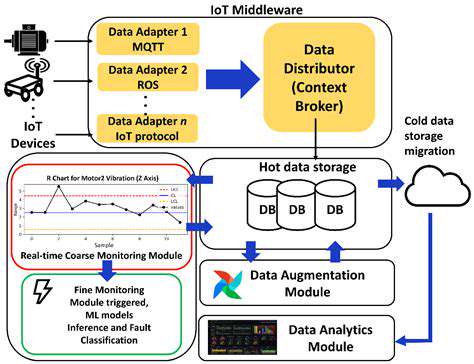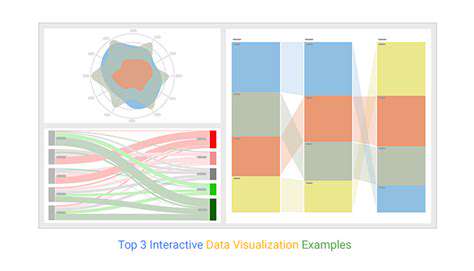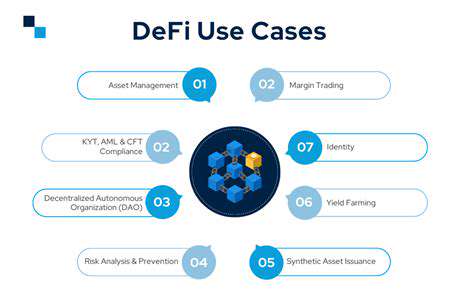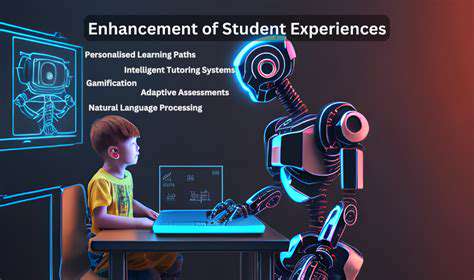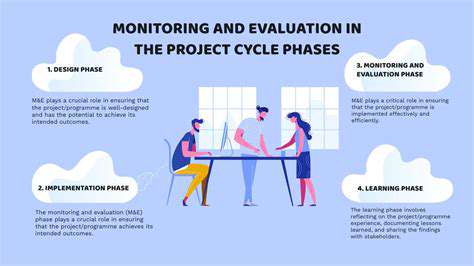
Interactive Learning Experiences for Deeper Understanding
Interactive Simulations for Hands-on Learning
Interactive simulations are a powerful tool for fostering deeper understanding in a variety of subjects. They allow students to engage with complex concepts in a dynamic and engaging way, moving beyond passive reading and lecture-based learning. By manipulating variables and observing the consequences, students develop a more intuitive grasp of the underlying principles. These simulations can cover everything from chemical reactions in chemistry to historical events in social studies, making abstract ideas more tangible and memorable.
Imagine a student learning about the Krebs cycle in biology. Instead of just reading about it in a textbook, they can use a simulation to adjust enzyme concentrations, track energy production, and visualize the intricate steps of the process. This active participation leads to a more profound understanding than simply memorizing a series of reactions.
Personalized Learning Paths Tailored to Individual Needs
AI-powered study tools can analyze a student's strengths, weaknesses, and learning style to create personalized learning paths. This means that instead of a one-size-fits-all approach, students receive targeted instruction and practice exercises that address their specific needs. This personalized approach can significantly improve learning outcomes by ensuring that each student receives the support they need to succeed.
For example, if a student struggles with fractions, the AI can identify this weakness and provide focused practice exercises specifically designed to address that area. This targeted approach allows the student to master the concept at their own pace, fostering confidence and a deeper understanding.
Adaptive Quizzing and Feedback for Continuous Improvement
AI algorithms can dynamically adjust the difficulty of quizzes based on a student's performance. This adaptive quizzing ensures that students are consistently challenged and receive feedback on areas where they need improvement. This iterative process of assessment and feedback allows students to identify gaps in their knowledge and focus their efforts on areas that require more attention.
Gamified Learning Experiences for Increased Motivation
Integrating game mechanics into learning experiences can significantly increase student motivation and engagement. Points, badges, leaderboards, and challenges can make learning more fun and exciting, encouraging students to actively participate and strive for improvement. Gamification transforms study sessions into enjoyable and interactive experiences, fostering a love of learning that extends beyond the classroom.
The AI can tailor the game elements to the student's specific learning style and pace, ensuring that the game remains engaging and motivating while also effectively reinforcing the learning objectives. This can be particularly effective in subjects that can sometimes be perceived as dry or tedious.
Real-time Data Analysis and Personalized Recommendations
AI-powered study tools can track student progress in real-time, providing valuable insights into their learning patterns and areas needing attention. This data analysis allows educators and students to identify learning gaps and adjust learning strategies accordingly. This ongoing monitoring enables targeted interventions, personalized support, and continuous improvement in learning outcomes.
The AI can provide personalized recommendations for further learning based on the student's performance and learning style. This proactive approach empowers students to take ownership of their learning journey and achieve their full potential. By continuously monitoring and adapting to the student's needs, the AI ensures effective learning and fosters a deeper understanding of the subject matter.
Adaptive Feedback and Personalized Support
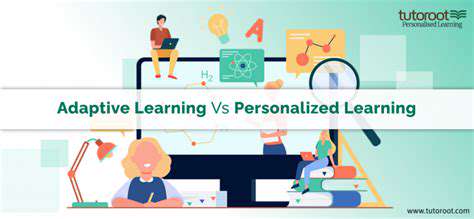
Understanding Adaptive Feedback
Adaptive feedback systems are designed to provide tailored responses based on the user's performance and learning style. Instead of a one-size-fits-all approach, these systems dynamically adjust the level of support and the type of information presented. This personalized approach aims to optimize the learning process, ensuring that users receive the most effective guidance at each stage of their development. Adaptive feedback is crucial for maximizing learning outcomes and ensuring that users grasp concepts thoroughly.
These systems often utilize algorithms to analyze user input and performance data, identifying areas where further explanation or practice is needed. This data-driven approach ensures that feedback is relevant and timely, leading to a more efficient and engaging learning experience. By tracking progress and identifying individual strengths and weaknesses, adaptive feedback systems can effectively personalize learning paths.
Personalized Learning Experiences
Personalized learning experiences are central to the effectiveness of adaptive feedback systems. By tailoring the content and pace of learning to individual needs, these systems create a more engaging and productive learning environment. This approach is particularly beneficial for diverse learners with varying learning styles and paces. Personalized learning experiences cater to individual preferences and learning styles, leading to a higher degree of engagement and comprehension.
A key benefit of personalization is the ability to address specific knowledge gaps. Instead of presenting a generic lesson plan, adaptive systems can pinpoint areas where a student is struggling and provide targeted support. This targeted approach allows students to focus on the material that requires the most attention, ultimately leading to a more effective learning outcome.
The Role of Technology in Adaptive Feedback
Modern technology plays a crucial role in enabling adaptive feedback systems. Sophisticated algorithms and data analysis tools are essential for tracking user progress, identifying learning patterns, and providing personalized recommendations. This technology allows for the dynamic adjustment of feedback based on real-time performance data, creating a highly responsive and effective learning experience.
Benefits of Adaptive Feedback in Education
Adaptive feedback systems offer numerous advantages in education. Students benefit from a more engaging and personalized learning experience. Teachers gain valuable insights into student progress and can tailor their instruction to address individual needs more effectively. Ultimately, this leads to improved learning outcomes and greater student engagement. The ability to provide timely and relevant feedback is especially important in today's dynamic learning environment.
By leveraging technology and data analysis, adaptive feedback systems can create more efficient and effective learning experiences. This is especially beneficial in areas where individualized attention is important, such as tutoring and online courses.
